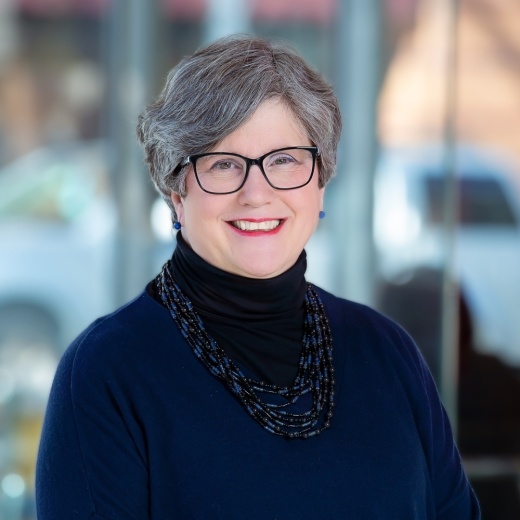Cathi Coridan is a real estate agent who specializes in the transition to senior living. Coridan served seniors in the Washington, D.C., area before moving to the Dallas metroplex in 2021. She has been involved in senior-focused real estate in the area since, using her “less stress and more success” model. Richard Malcolm is the owner of Assisted Living Locators, a company that provides no-cost assistance to families and seniors looking for the best option in a move to senior living. Malcolm has been working with seniors in Flower Mound and surrounding areas for the last two years after working for 20 years as a collectible toy buyer.
Learn more about Coridan's services at her website, www.yourtransitionpartner.com.
What makes a move into senior living unique?
Working with seniors, it’s about the life transition, not just the real estate transaction. They haven’t had a real estate transaction in 35 or 40 years. It’s a whole different world out there, and they have accumulated years and years of stuff. That becomes really an overwhelming obstacle to making a decision that benefits and helps themselves. They also may have had a significant loss in their life, or there’s a significant emotional attachment to the house. People don’t make plans to make those changes until after there’s a crisis, and when there’s a crisis, you can make really bad decisions.
What are some of the different options for senior living?
The [age] 55-plus communities have single-family homes that are actually exempt from fair housing laws. They’re all one-floor plans, usually two to three bedrooms, very small lot lines, and a gazillion amenities and activities. That creates a senior community where they can be engaged and still have their independence. Then there are senior independent apartments. Some of them are just apartments that are restricted to [age] 55 and over, and some are there to really provide seniors with upscale apartment living. It’s really the downsizing with none of the cares of homeownership. And then there’s assisted living, which is what folks typically go into when they can no longer live independently in their home. It can be beginning to have memory issues; it can be mobility issues, but there’s a nursing desk, and there are people there all the time. Then there’s skilled nursing, which is when you really can’t get out of bed without somebody helping you, and hospice, which is providing folks support in the last days.
When should a Realtor get involved in a senior move?
People often call the Realtor once everything else is done, and they just want me to stick a sign in their front yard. There’s not a cookie-cutter approach, but I think the Realtor—if it’s a senior real estate specialist—should be one of the first people that’s brought in because of my access to a network of people who can help them make the best decision. Seniors deserve the best, not leftovers.
When is the right time to move into senior housing?
When it’s the right time for the senior. The most important piece is the safety of the senior. Usually their physician and their financial planner, and maybe their attorney will be involved in the conversation, because it’s—in addition to being a move—it’s also a huge financial transaction. It’s when it’s the right time for the senior.
Richard Malcolm is the owner of Assisted Living Locators, a company that provides no-cost assistance to families and seniors looking for the best option in a move to senior living. Malcolm has been working with seniors in Flower Mound and surrounding areas for the last two years after working for 20 years as a collectible toy buyer.
More information on Malcolm’s work can be found at www.assistedlivinglocators.com.
What are some signs that it might be time to look at senior living?
My objective is not to move everyone out. Some people will be happier at home, but at a point it may become a medical necessity. If you recognize that they seem to be falling more or forgetting things a lot easier, then it’s time to really consider it. Also if you start to see that the senior is feeling depressed or lonely, which can be hard to recognize, it may be time to start looking. But as long as the senior is able to make decisions, they 100% need to be involved.
What is the process when trying to find senior housing for a client?
I’m always looking for people in need of my service, and a lot of people don’t realize my service exists until it’s three years too late. When I talk to a potential resident or the family, I will go and listen to them and get to know them as much as I can, which is the most important thing in the matchmaking service.
What is the matchmaking process for finding senior housing?
Communities that I think might be great may not be great for everyone, so it’s all about [finding] them somewhere where they can be stimulated. I keep in contact with the communities and tour them as much as I can, so I can keep a tab on them and stay on top of their staffing changes. I’m able to cut through a lot of the secretaries and desk people, and then we can knock out two-three tours in one day if that’s what works best. It’s also about figuring out what’s most important to the senior. It’s literally matchmaking, so it reduces the stress of the search on the seniors and the families.
What are some misconceptions about senior living?
People often think of nursing homes as a place where people go to sit in a chair and die. It’s about getting people to realize how awesome some of these places are, because their image is what their grandparents had in 1960. There are a lot of independent living options that I think are wonderful. Those all have a different selection of what they provide, but they are built for seniors. If you live in an independent living community and you start to become dependent, you can use in-home care if it works financially. That’s a great transition between independent living [to] assisted [living]. See if you can get someone to go take a look at it, because that can really change the thinking for people that are so resistant to it. A lot of times, they don’t realize how much better off they’ll be in senior living.







